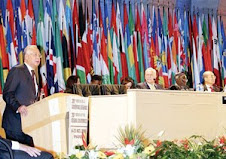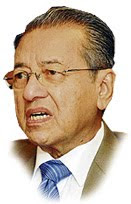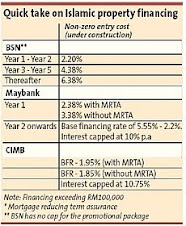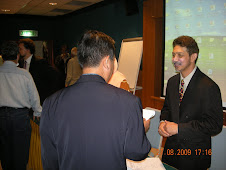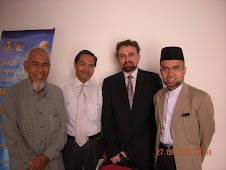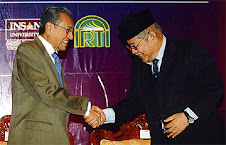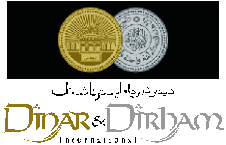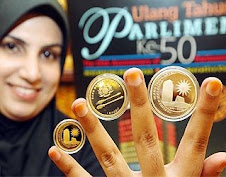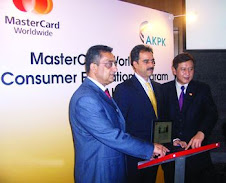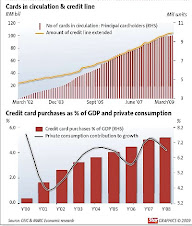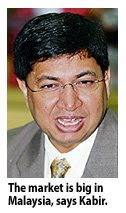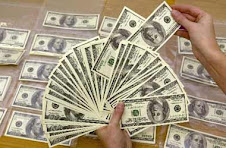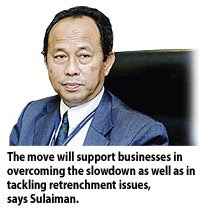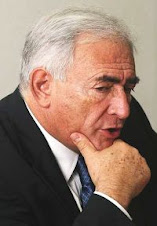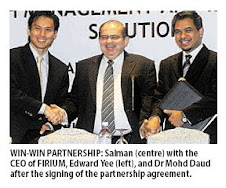PSD: Second jobs OK but ...
by Maria J. Dass
PETALING JAYA (June 28): Civil servants are given the leeway to take on second jobs and delve in businesses to supplement their income but it must not be in conflict with their government jobs.
"The second jobs must also be done after office hours and not affect their productivity in government service," Public Service Department director-general Tan Sri Ismail Adam told theSun today.
Ismail was responding to a Bernama report quoting Cuepacs as calling for leniency when dealing with civil servants who are in debt and are taking on extra jobs to top up their income.
Cuepacs secretary-general Ahmad Shah Mohd Zin said about 40% of the country’s 1.2 million civil servants are in debt and have take-home salaries less than 40% of their monthly income.
Ismail said: "Those who want to take on additional jobs have to first get permission from their department heads. I do not know how the estimation that 40% of civil servants are in debt was reached but if this is true, it is a big number, and comes as a surprise especially since support staff, especially those living in the city had received good increments over the last two years."
He said civil servants’ spending and lifestyle should commensurate with their earnings.
Giving examples of conflict of interest with respect to the second source of income, he said policemen working with security companies and teachers setting up tuition centres can be construed as conflict of interest and thus subject to disciplinary action.
In the Bernama report, Ahmad Shah said heads of ministries and departments should be humane in dealing with civil servants who are in debt as this group of workers needed "special attention as they may be vulnerable to corruption and moonlighting".
Almost 450,000 of the civil servants are in debt and their take-home salary is less than 40% of their monthly pay, he said, adding that the bulk of their salaries is deducted at source as payment for various loans – housing, cars, renovations, education and hospitalisation.
Cuepacs’ stand is that these officers need to be "rehabilitated" before any disciplinary action is taken against them.
"What is happening now is that the heads of department usually find the easy way out by taking disciplinary action, like stopping increments, denying promotions and suspension from duty, thus aggravating the situation."
Ahmad Shah said hundreds of civil servants are moonlighting as taxi drivers, petty traders, direct sales agents and watchmen to make ends meet.
Although the government is aware of the situation and has taken some positive steps like giving them official permission to work part-time, it is not enough, he said.
"The high cost of living, especially in the urban areas, is eating into their income, thus causing them to be constantly in debt," he said.
Federation of Malaysian Consumer Associations (Fomca) secretary-general Muhammad Shaani Abdullah agreed that the high cost of living is one factor contributing to the debts of civil servants.
"It is a myth that civil servants are spendthrifts and don’t know how to manage money. The truth is that civil servants’ salaries have not kept in tandem with the increase in the cost of living," he said.
Muhammad said if the government is unable to increase salaries, it can assist these civil servants in many other ways to cope with the rising cost of living.
Some of the areas where it can help are to improve the public transportation system to make it affordable and reliable, provide better medical facilities and more scholarships, open special cooperatives, offer soft loans for housing and other needs and give discounts on utilities.
Updated: 09:55PM Sun, 28 Jun 2009
Printable Version | Email to a Friend
Sunday, June 28, 2009
Financial system not out of the woods yet: Board
Financial system not out of the woods yet: Board
Published: 2009/06/29
BASEL: The head of the international body tasked with restoring stability to the world's financial system said last Saturday that the system had improved significantly but was "not out of the woods yet".
"We are more or less back at what we were before Lehman, but we are not back to before the crisis," Financial Stability Board (FSB) chair and Italian central bank chief Mario Draghi said.
He was referring to the sudden collapse of US banking giant Lehman Brothers last September, which plunged financial markets and the banking and credit system into turmoil.
"An improvement yes, out of the woods, not yet," he added after the FSB's inaugural meeting, underlining renewed confidence.
Draghi pointed to two "positive signs": the way US banks in particular had managed to raise US$10 billion (US$1 = RM3.54) in private capital recently, and the strength of corporate bond issuance.
However, he also highlighted the unfinished restructuring of banks and the fragile credit channels among the "uncertainties".
These features have to be restored in order to "sustain the recovery", Draghi told journalists. "When the time will come, we'll have to try to coordinate our exit strategies."
But he emphasised that the financial and economic climate was still too fragile to unwind the cuts in interest rates, stimulus plans and other measures taken to combat the slump and credit squeeze.
"You have to have the bank system repaired before you run a tight monetary policy," the FSB chief pointed out.
The FSB is meant to a broadened and strengthened Financial Stability Forum, bringing together central banks, the IMF, World Bank, national regulators and governments, tasked with permanent oversight of the financial system. - AFP
Most Accessed Most Emailed From NST
Bullish but profit-taking to cap gains on Bursa
KL bourse good for trading in H2: Alliance
V Telecoms seeks Bursa or London listing in expansion
Ho Hup confident of PN17 exit by early 2010
Ho Hup drafting turnaround strategy
Airlines get 'silver lining' from jet fuel surge
Investments in Malaysian hotels plunge
Perisai to build units for oil firms working smaller fields
ETF investment strategies
MASkargo's 747-400 may take to the air again by Q4
Perisai to build units for oil firms working smaller fields
Kumho Asiana to sell Daewoo Engineering
Dompok sees tocotrienols in new light
Kotra Industries expects healthy revenue growth
PKA defers 3-day free storage period ruling again
Ho Hup confident of PN17 exit by early 2010
Consumers willing to pay for content
Plain talk on branding for SMEs
Penang Port to act against those who overload containers
V Telecoms seeks Bursa or London listing in expansion
Top Stories
Man shot dead execution-style in front of wife
Exposed after striptease
Jackson family order new autopsy, anger mounts
The telephone number is no longer in use, YB
Chong Wei wins second title in two weeks
Filipino Muslim maids to fill void
MP: Sarawak gangsters making a comeback
5 caught dismantling stolen car
Brace for 3 to 14 hours without electricity
'Teacher hit me after complaint'
Local Foreign Market Watch
Ho Hup confident of PN17 exit by early 2010
V Telecoms seeks Bursa or London listing in expansion
MASkargo's 747-400 may take to the air again by Q4
PwC ready to help Malaysians keen to invest in Australia
Consumers willing to pay for content
Perisai to build units for oil firms working smaller fields
Kotra Industries expects healthy revenue growth
Plain talk on branding for SMEs
MAS is KLIA airline of the year again
Dompok sees tocotrienols in new light
Penang Port to act against those who overload containers
PKA defers 3-day free storage period ruling again
Published: 2009/06/29
BASEL: The head of the international body tasked with restoring stability to the world's financial system said last Saturday that the system had improved significantly but was "not out of the woods yet".
"We are more or less back at what we were before Lehman, but we are not back to before the crisis," Financial Stability Board (FSB) chair and Italian central bank chief Mario Draghi said.
He was referring to the sudden collapse of US banking giant Lehman Brothers last September, which plunged financial markets and the banking and credit system into turmoil.
"An improvement yes, out of the woods, not yet," he added after the FSB's inaugural meeting, underlining renewed confidence.
Draghi pointed to two "positive signs": the way US banks in particular had managed to raise US$10 billion (US$1 = RM3.54) in private capital recently, and the strength of corporate bond issuance.
However, he also highlighted the unfinished restructuring of banks and the fragile credit channels among the "uncertainties".
These features have to be restored in order to "sustain the recovery", Draghi told journalists. "When the time will come, we'll have to try to coordinate our exit strategies."
But he emphasised that the financial and economic climate was still too fragile to unwind the cuts in interest rates, stimulus plans and other measures taken to combat the slump and credit squeeze.
"You have to have the bank system repaired before you run a tight monetary policy," the FSB chief pointed out.
The FSB is meant to a broadened and strengthened Financial Stability Forum, bringing together central banks, the IMF, World Bank, national regulators and governments, tasked with permanent oversight of the financial system. - AFP
Most Accessed Most Emailed From NST
Bullish but profit-taking to cap gains on Bursa
KL bourse good for trading in H2: Alliance
V Telecoms seeks Bursa or London listing in expansion
Ho Hup confident of PN17 exit by early 2010
Ho Hup drafting turnaround strategy
Airlines get 'silver lining' from jet fuel surge
Investments in Malaysian hotels plunge
Perisai to build units for oil firms working smaller fields
ETF investment strategies
MASkargo's 747-400 may take to the air again by Q4
Perisai to build units for oil firms working smaller fields
Kumho Asiana to sell Daewoo Engineering
Dompok sees tocotrienols in new light
Kotra Industries expects healthy revenue growth
PKA defers 3-day free storage period ruling again
Ho Hup confident of PN17 exit by early 2010
Consumers willing to pay for content
Plain talk on branding for SMEs
Penang Port to act against those who overload containers
V Telecoms seeks Bursa or London listing in expansion
Top Stories
Man shot dead execution-style in front of wife
Exposed after striptease
Jackson family order new autopsy, anger mounts
The telephone number is no longer in use, YB
Chong Wei wins second title in two weeks
Filipino Muslim maids to fill void
MP: Sarawak gangsters making a comeback
5 caught dismantling stolen car
Brace for 3 to 14 hours without electricity
'Teacher hit me after complaint'
Local Foreign Market Watch
Ho Hup confident of PN17 exit by early 2010
V Telecoms seeks Bursa or London listing in expansion
MASkargo's 747-400 may take to the air again by Q4
PwC ready to help Malaysians keen to invest in Australia
Consumers willing to pay for content
Perisai to build units for oil firms working smaller fields
Kotra Industries expects healthy revenue growth
Plain talk on branding for SMEs
MAS is KLIA airline of the year again
Dompok sees tocotrienols in new light
Penang Port to act against those who overload containers
PKA defers 3-day free storage period ruling again
Friday, June 26, 2009
Credit card late payment fees cut
Published: Friday June 26, 2009 MYT 8:58:00 PM
Credit card late payment fees cut
PETALING JAYA: Credit card late payment fees for all commercial banks will be reduced from a maximum of RM75 to RM50 beginning July 1.
At the same time, the minimum fee for late payment charges will be reduced to RM5 or 1% of the total balance outstanding at statement date, whichever is higher, up to a new maximum of RM50.
The Association of Banks said cardholders for its members would also be given a minimum three-day grace period from the due date of their statement to pay, during which no late payment fees would be imposed.
Its executive director Chuah Mei Lin said the move was another step taken to provide their customers with more flexibility in managing their credit cards.
“The provision of the grace period does not detract from the underlying principle of prompt and disciplined payment.
“Habitual late payers hoping to pay just before or after the expiry of the grace period will be disappointed,” she emphasised, stressing the need for them to better manage their personal finances.
Currently, not all banks observe the provision of a grace period while the policy for those that do differ from one institution to the other.
These new provisions follow reductions in credit card tiered interest rates and late payment fees announced earlier.
Credit card late payment fees cut
PETALING JAYA: Credit card late payment fees for all commercial banks will be reduced from a maximum of RM75 to RM50 beginning July 1.
At the same time, the minimum fee for late payment charges will be reduced to RM5 or 1% of the total balance outstanding at statement date, whichever is higher, up to a new maximum of RM50.
The Association of Banks said cardholders for its members would also be given a minimum three-day grace period from the due date of their statement to pay, during which no late payment fees would be imposed.
Its executive director Chuah Mei Lin said the move was another step taken to provide their customers with more flexibility in managing their credit cards.
“The provision of the grace period does not detract from the underlying principle of prompt and disciplined payment.
“Habitual late payers hoping to pay just before or after the expiry of the grace period will be disappointed,” she emphasised, stressing the need for them to better manage their personal finances.
Currently, not all banks observe the provision of a grace period while the policy for those that do differ from one institution to the other.
These new provisions follow reductions in credit card tiered interest rates and late payment fees announced earlier.
Wednesday, June 24, 2009
Halal hub project to help KHSB return to profitability
Halal hub project to help KHSB return to profitability
By Azlan Abu BakarPublished: 2009/06/19
KUMPULAN Hartanah Selangor Bhd (KHSB) (6246) is set to return to the black by end-2009 as it starts to gain from the development of its industrial properties, especially the Selangor Halal Hub (SHH) in Pulau Indah, Klang.
The property arm of the state's investment firm Kumpulan Darul Ehsan Bhd also plans to dispose of non-strategic properties to improve its financial standing after suffering a loss of RM35 million in the last financial year ended December 31 2008.
"We have fully sold Phase 1 of SHH comprising 88ha of industrial land within four years, worth a total of RM133 million," said its executive chairman Datuk Abdul Karim Munisar.
He said Phase 1 is expected to bring in direct investments worth more than RM1 billion, creating about 2,000 new jobs.
Abdul Karim said major players that will operate in the area include Ramly Food Industries Sdn Bhd, Felda, Mara and PML Dairies.
"All facilities have been put in place. It's only a matter of time before these companies start construction of their facilities. One company has started construction and is expected to begin operations in two years," he said.
Speaking to reporters after KHSB's annual general meeting in Shah Alam, Selangor, yesterday, Abdul Karim noted that reclamation works for Phase 2 which involves 97.6ha of industrial land with a gross development value (GDV) of RM234 million have been completed.
"Negotiations with potential foreign and local investors are still ongoing, and we expect to conclude sales worth at least RM70 million this year," he said.
Abdul Karim said construction of the South Klang Valley Expressway is also expected to enhance the accessibility to Pulau Indah and will be a catalyst of growth for the Pulau Indah development.
"We expect to fully sell off Phase 2 within five years," he said.
With a land bank of more than 1,600ha, KHSB, together with Kumpulan Darul Ehsan, are also looking into the possibility of venturing into sand and minerals exploration and exploitation to diversify its cash stream.
"Besides the 1,600ha of land we have now, the state agency is expected to transfer another 2,000ha of land to us to help improve the cash flow of the company in the future," he said, adding that the firm is in the midst of acquiring a strategic land in Petaling Jaya for a proposed mixed development with a GDV of RM600 million.
For financial year ended December 31 2008, the company's revenue dropped 60.08 per cent to RM96.1 million from RM240.8 million previously.
By Azlan Abu BakarPublished: 2009/06/19
KUMPULAN Hartanah Selangor Bhd (KHSB) (6246) is set to return to the black by end-2009 as it starts to gain from the development of its industrial properties, especially the Selangor Halal Hub (SHH) in Pulau Indah, Klang.
The property arm of the state's investment firm Kumpulan Darul Ehsan Bhd also plans to dispose of non-strategic properties to improve its financial standing after suffering a loss of RM35 million in the last financial year ended December 31 2008.
"We have fully sold Phase 1 of SHH comprising 88ha of industrial land within four years, worth a total of RM133 million," said its executive chairman Datuk Abdul Karim Munisar.
He said Phase 1 is expected to bring in direct investments worth more than RM1 billion, creating about 2,000 new jobs.
Abdul Karim said major players that will operate in the area include Ramly Food Industries Sdn Bhd, Felda, Mara and PML Dairies.
"All facilities have been put in place. It's only a matter of time before these companies start construction of their facilities. One company has started construction and is expected to begin operations in two years," he said.
Speaking to reporters after KHSB's annual general meeting in Shah Alam, Selangor, yesterday, Abdul Karim noted that reclamation works for Phase 2 which involves 97.6ha of industrial land with a gross development value (GDV) of RM234 million have been completed.
"Negotiations with potential foreign and local investors are still ongoing, and we expect to conclude sales worth at least RM70 million this year," he said.
Abdul Karim said construction of the South Klang Valley Expressway is also expected to enhance the accessibility to Pulau Indah and will be a catalyst of growth for the Pulau Indah development.
"We expect to fully sell off Phase 2 within five years," he said.
With a land bank of more than 1,600ha, KHSB, together with Kumpulan Darul Ehsan, are also looking into the possibility of venturing into sand and minerals exploration and exploitation to diversify its cash stream.
"Besides the 1,600ha of land we have now, the state agency is expected to transfer another 2,000ha of land to us to help improve the cash flow of the company in the future," he said, adding that the firm is in the midst of acquiring a strategic land in Petaling Jaya for a proposed mixed development with a GDV of RM600 million.
For financial year ended December 31 2008, the company's revenue dropped 60.08 per cent to RM96.1 million from RM240.8 million previously.
Friday, June 19, 2009
Najib nod for Islamic channel
Najib nod for Islamic channel
PUTRAJAYA: Prime Minister Datuk Seri Najib Razak wants a government-owned Islamic television channel to be set up so that information on religious-related issues could be explained to the masses more effectively.
Minister in the Prime Minister's Department Maj-Gen (rtd) Datuk Jamil Khir Baharom said yesterday the channel would be established soon once several technical issues were ironed out.
Jamil said this was among the decisions reached at a meeting of the Islamic Affairs Council, chaired by Najib at his office.
"The prime minister agreed to the proposal. Several technical issues, including those regarding frequency, are being worked out."
The name of the channel has yet to be ascertained but its content will be handled by the Islamic Development Department.
The aim is to instil understanding of the religion while tackling sensitive issues in a more effective manner.
Various programmes aimed at propagating Islam have already been identified.
The channel will feature, among others, prime news, economic, sports and cultural development programmes as well as entertainment.
PUTRAJAYA: Prime Minister Datuk Seri Najib Razak wants a government-owned Islamic television channel to be set up so that information on religious-related issues could be explained to the masses more effectively.
Minister in the Prime Minister's Department Maj-Gen (rtd) Datuk Jamil Khir Baharom said yesterday the channel would be established soon once several technical issues were ironed out.
Jamil said this was among the decisions reached at a meeting of the Islamic Affairs Council, chaired by Najib at his office.
"The prime minister agreed to the proposal. Several technical issues, including those regarding frequency, are being worked out."
The name of the channel has yet to be ascertained but its content will be handled by the Islamic Development Department.
The aim is to instil understanding of the religion while tackling sensitive issues in a more effective manner.
Various programmes aimed at propagating Islam have already been identified.
The channel will feature, among others, prime news, economic, sports and cultural development programmes as well as entertainment.
AmBank launches credit card drive
AmBank launches credit card drive
Published: 2009/06/19
AMBANK (M) Bhd expects its third Balance Transfer/QuickCash (BTQC) campaign to generate interest and brand visibility in the marketplace with its integrated advertising activities.
In a statement in Kuala Lumpur today, its general manager, cards and line of credit, Perry Ong, said the AmBank Credit Cards' promotion, which started on May 27 with the theme "Old World, New World", would be held until November this year.
Ong said the promotion would reinforce its ownership of the highly competitive BTQC space in the market place.
"It has become an effective vehicle for us to acquire new cards and build receivables," he said.
He said this was an opportune time to launch the promotion as consumers were looking at consolidating their finances because they often considered reducing the number of credit cards they carried.
AmBank said the promotion would feature three gifts - Hewlett-Packard's mini 110, Sharp Aquos 32" and 37" liquid crystal display televisions and Sony Ericsson's T303 and W595 models.
In addition to the gifts, it said, the minimum BTQC amounts had been revised to five tiers, begin from as low as RM4,000 to RM20,000. - Bernama
Published: 2009/06/19
AMBANK (M) Bhd expects its third Balance Transfer/QuickCash (BTQC) campaign to generate interest and brand visibility in the marketplace with its integrated advertising activities.
In a statement in Kuala Lumpur today, its general manager, cards and line of credit, Perry Ong, said the AmBank Credit Cards' promotion, which started on May 27 with the theme "Old World, New World", would be held until November this year.
Ong said the promotion would reinforce its ownership of the highly competitive BTQC space in the market place.
"It has become an effective vehicle for us to acquire new cards and build receivables," he said.
He said this was an opportune time to launch the promotion as consumers were looking at consolidating their finances because they often considered reducing the number of credit cards they carried.
AmBank said the promotion would feature three gifts - Hewlett-Packard's mini 110, Sharp Aquos 32" and 37" liquid crystal display televisions and Sony Ericsson's T303 and W595 models.
In addition to the gifts, it said, the minimum BTQC amounts had been revised to five tiers, begin from as low as RM4,000 to RM20,000. - Bernama
Thursday, June 18, 2009
Maybank Expects 150,000 For New Gold Credit Card
009 15:21 PM
Maybank Expects 150,000 For New Gold Credit Card
KUALA LUMPUR, June 18 (Bernama) -- Malayan Banking Bhd (Maybank) expects to sign up at least 150,000 cardholders within a year for its new American Express Gold Credit Card.
Maybank head of consumer banking, Lim Hong Tat, said the bank's target was based on the credit card being the first in the country to offer the lowest revolving interest rate of 9.0 percent per annum.
"We believe that this new card will be well received by the public as cardmembers can enjoy lowest interest rate of 9.0 percent when they make prompt minimum payments, compared with normal charges of 16 percent per annum," he told reporters after the card launch here today.
The new card also comes with an introductory offer of zero percent finance charge on the outstanding retail balance till December 2009.
It also offers high loyalty rewards with cardmembers receiving five times membership rewards points for every ringgit charged on groceries, petrol and telecommunications services through express autopay, and at selected bookstores.
For all other purchases in Malaysia and abroad, cardmembers will receive double membership rewards points for every ringgit charges.
The card targets young and affluent professionals who have an annual income of RM36,000 and above, said Maybank, the country's biggest lender which currently has more than 1.5 million credit cardholders.
The bank's credit card non-performing loan is below 2.0 percent compared with the industry average at 2.4 percent, according to Lim.
He said the bank's credit card default rate was under control.
American Express' senior vice president and head of global network services, Kula Kulendran, said the new card provided another payment tool option for customers to fulfil their lifestyle need.
"This card is the best option for customers to manage their finances given the current economic scenario," he said.
He also said that the new card would help to boost American Express' existing portfolio of premium charge and credit cards to serve young customers in the vibrant segment.
-- BERNAMA
Maybank Expects 150,000 For New Gold Credit Card
KUALA LUMPUR, June 18 (Bernama) -- Malayan Banking Bhd (Maybank) expects to sign up at least 150,000 cardholders within a year for its new American Express Gold Credit Card.
Maybank head of consumer banking, Lim Hong Tat, said the bank's target was based on the credit card being the first in the country to offer the lowest revolving interest rate of 9.0 percent per annum.
"We believe that this new card will be well received by the public as cardmembers can enjoy lowest interest rate of 9.0 percent when they make prompt minimum payments, compared with normal charges of 16 percent per annum," he told reporters after the card launch here today.
The new card also comes with an introductory offer of zero percent finance charge on the outstanding retail balance till December 2009.
It also offers high loyalty rewards with cardmembers receiving five times membership rewards points for every ringgit charged on groceries, petrol and telecommunications services through express autopay, and at selected bookstores.
For all other purchases in Malaysia and abroad, cardmembers will receive double membership rewards points for every ringgit charges.
The card targets young and affluent professionals who have an annual income of RM36,000 and above, said Maybank, the country's biggest lender which currently has more than 1.5 million credit cardholders.
The bank's credit card non-performing loan is below 2.0 percent compared with the industry average at 2.4 percent, according to Lim.
He said the bank's credit card default rate was under control.
American Express' senior vice president and head of global network services, Kula Kulendran, said the new card provided another payment tool option for customers to fulfil their lifestyle need.
"This card is the best option for customers to manage their finances given the current economic scenario," he said.
He also said that the new card would help to boost American Express' existing portfolio of premium charge and credit cards to serve young customers in the vibrant segment.
-- BERNAMA
Wednesday, June 17, 2009
MASTERCARD launches e-Learning Centre
MASTERCARD Worldwide recently launched its e-Learning Centre to aid consumers in personal finances management.
(From left) Mohamed Akwal, Bhalla and MasterCard Worldwide
Malaysia and Brunei vice-president and senior country manager
Jim Cheah at the launch.
The online consumer education resource will offer customers easy access to tools that will encourage efficient spending.
The contents were developed and localised in collaboration with Agensi Kaunseling dan Pengurusan Kredit (AKPK) — the Credit Counseling and Management Agency in Malaysia.
The e-Learning Centre for consumer education provides cardholders with suggestions on credit use, tools for understanding and dealing with potential payment issues, and strategies for greater security.
These tools include tip sheets, Q&As, budget tracker worksheets that evaluates consumers expenditure and glossary tip sheets that explain credit in layman’s terms.
The e-Learning Centre is categorised by topics:
"Credit Wise" focuses on using credit effectively to provide consumer benefit.
"Debt Know-how" focuses on understanding and dealing with potential payment issues. It also gives users information on the several payment tools available to manage finances including MasterCard debit, prepaid and credit cards.
"Staying Secure" focuses on staying smart to ensure constant card security.
"Consumer education has always been important to MasterCard, and we strive to empower cardholders with the knowledge and insights to most effectively manage their finances" said MasterCard Worldwide, Southeast and South Asia executive vice-president Ajay Bhalla.
The launch of the MasterCard e-Learning Centre in Singapore and Malaysia is part of our continuous effort to address the needs of consumers in Southeast and South Asia, and marks the start of a broader consumer education programme to be rolled out across Southeast and South Asia within the year.
"There have been a rising number of consumers seeking advice from the AKPK on the best ways to manage their finances, said AKPK chief executive officer Mohamed Akwal Sultan.
"As such, we’re pleased to be working with MasterCard to provide a more consumer friendly approach to financial education."
"It is our fervent hope and vision to empower consumers with the right financial tools and knowledge.
"With this, they can make prudent financial management a way of life," he added.
The MasterCard e-Learning Centre may be accessed at www.mastercard.com/sea
(From left) Mohamed Akwal, Bhalla and MasterCard Worldwide
Malaysia and Brunei vice-president and senior country manager
Jim Cheah at the launch.
The online consumer education resource will offer customers easy access to tools that will encourage efficient spending.
The contents were developed and localised in collaboration with Agensi Kaunseling dan Pengurusan Kredit (AKPK) — the Credit Counseling and Management Agency in Malaysia.
The e-Learning Centre for consumer education provides cardholders with suggestions on credit use, tools for understanding and dealing with potential payment issues, and strategies for greater security.
These tools include tip sheets, Q&As, budget tracker worksheets that evaluates consumers expenditure and glossary tip sheets that explain credit in layman’s terms.
The e-Learning Centre is categorised by topics:
"Credit Wise" focuses on using credit effectively to provide consumer benefit.
"Debt Know-how" focuses on understanding and dealing with potential payment issues. It also gives users information on the several payment tools available to manage finances including MasterCard debit, prepaid and credit cards.
"Staying Secure" focuses on staying smart to ensure constant card security.
"Consumer education has always been important to MasterCard, and we strive to empower cardholders with the knowledge and insights to most effectively manage their finances" said MasterCard Worldwide, Southeast and South Asia executive vice-president Ajay Bhalla.
The launch of the MasterCard e-Learning Centre in Singapore and Malaysia is part of our continuous effort to address the needs of consumers in Southeast and South Asia, and marks the start of a broader consumer education programme to be rolled out across Southeast and South Asia within the year.
"There have been a rising number of consumers seeking advice from the AKPK on the best ways to manage their finances, said AKPK chief executive officer Mohamed Akwal Sultan.
"As such, we’re pleased to be working with MasterCard to provide a more consumer friendly approach to financial education."
"It is our fervent hope and vision to empower consumers with the right financial tools and knowledge.
"With this, they can make prudent financial management a way of life," he added.
The MasterCard e-Learning Centre may be accessed at www.mastercard.com/sea
Sunday, June 14, 2009
Credit card trap
Saturday June 13, 2009
Credit card trap
By DALJIT DHESI
Less than a month ago, US President Barack Obama signed sweeping credit card reforms into law to shield American credit card holders from predatory fees, among others. With mounting credit card debts and a tough climate, could now be a good time for Malaysia to consider similar reforms?
SITE supervisor Joe Manikam, 31, was retrenched from a multinational company last year. To make ends meet, he used his credit card to manage certain expenses while scouring the job market. He struggled for 10 months and ended up doing odd jobs. He now spends sleepless nights worrying about how to settle his credit card debt which has burgeoned to unmanageable levels while he struggles to settle the minimum charges.
Worryingly, Manikam is not the only one who has been using credit cards as a temporary crutch during these hard times and found himself caught in a long-term trap of credit card debt.
Think about it – a total of 33,361 people have found themselves out of work (retrenched) in the country from Oct 1, 2008 to May 7, 2009. A further 42,884 have been temporarily laid-off or have suffered pay-cuts. This data may not be exhaustive as it only takes into account those who have registered with the Human Resource Ministry. And there’s little to indicate that the rise in jobless rate may halt any time soon.
For many of them, living from pay-cheque to pay-cheque or on their hard-earned savings, the debt burden could have suddenly turned insurmountable. Some desperate ones have given in to the lure of loan sharks while many others have sought counselling.
»Malaysian consumers are becoming more dependent on credit in their consumption behaviour« NOR ZAHIDI OF MALAYSIAN RATING CORP BH
Card woes – a global phenomenon
Agensi Kaunseling and Pengurusan Kredid (AKPK), a counselling unit under Bank Negara, says the bulk or two thirds of those seeking help to resolve debts have credit card headaches. And the root cause for 22% of their woes is poor debt and credit card management.
This is not a problem that is Malaysian-centric. Even the generally-perceived to be thrifty South Koreans found themselves crushed by debts which far exceeded their annual income a few years ago as the plastic card became more widely used.
In fact, in the United States and Europe, the use of “plastic money” is even more widespread.
A few years ago, the Bank of England revealed that Britons owed an astounding £1 trillion in consumer debt including credit cards and estimated that this debt was rising by £1mil every four minutes.
In the US, credit card debt has risen over 25% in the past decade with an average balance over of US$7,000. Over half of Americans carry a balance every month.
»Interest rate on outstanding credit card balances is relatively high despite the recent reduction« JEREMY TAN OF STANDARD FINANCIAL PLANNER SDN BHD
One in five Americans carries a credit card balance at an annualised rate of over 20%.
To put a lid on this worsening debt situation, US President Barack Obama recently signed a law that brings a sea change to American credit cardholders which he described as “common sense reforms to protect consumers”. Among others, the new legislation forbids rate increases on existing balances (unless late payment are of at least 60 days or the initial rate was a promotional rate), prohibits fees for payment processing and restrictions on issuance of cards to people under 21 years of age.
Economists lay part of the blame on these credit card woes squarely on governments who have long been pushing private consumption to drive economic growth, particularly in Asia post the 1998 Asian financial crisis.
Malaysian Rating Corp Bhd chief economist Nor Zahidi Alias says there has been an explosive growth in the amount of credit card usage since the new millennium. There is data to prove that. The number of cards in circulation for primary holders more than tripled to 9.67 million units as of March this year from merely 2.92 million seven years ago. In addition, the credit line for card holders more than quadrupled to RM103.8bil versus RM24.3bil in January 2002.
“Such a phenomenal growth suggests that Malaysian consumers are becoming more dependent on credit in their consumption behaviour. It also implies that banks have been aggressive in expanding their credit card business as the consumer segment becomes their primary focus.
“This is due to the fact that the consumer segment is less risky compared to the corporate sector,’’ he adds. Against that backdrop and not surprisingly, Zahidi points out that the value of purchases through credit cards as a percentage of gross domestic product has surged from 3.5% in 2002 to 7.6% in 2008.
»Studies reveal a consumer with a credit card is likely to spend 17% more than someone using cash« RAJEN DEVADASON OF MAAKL MUTUAL BHD
Crippling charges
To unravel the rising burden of credit card debt, one needs to understand the fee structure, which can prove to be onerous for the layman.
Banks impose various charges on credit cards holders – joining fee, annual fee, finance charges (interest charges), cash advance fee and penalty or late payment charges.
Many are not aware that their credit card debt is risky until it reaches crippling proportions.
Did you know that if you had an outstanding balance of RM1,000 and you were simply paying the minimum monthly charge of 5%, it would take you five years and eight months to settle the total debt and over and above that, you’d be paying RM382 in interest based on an interest rate of 18% per annum?
Then also know this – the four-figure debt as it stands now and if not settled completely, could also easily rise to a five-figure one within years.
Great Vision Advisory Group head of tax and financial planning Datuk Chua Tia Guan shares the experience of a friend who spent RM5,000 a month via his credit card but just makes the monthly minimum payment of 5%. Twelve months later, Chua says that although in total he had paid RM17,000, he found himself owing the credit card company almost RM50,000, based on an annual interest rate of 18%! To add salt to injury, he had to borrow to pay his credit card debt, which of course, only served to exacerbate his indebtedness.
Then, there is also the lure of free transfer of credit balances to another card which financial institutions tout all with the aim of gaining a bigger market share in a bitterly competitive industry. This facility essentially allows a card user to transfer his outstanding balance to a new credit card account and ups his credit limits.
Chua explains that this facility does not solve one’s debt woes. In fact, he says, it further compounds the situation as interest is not only charged on the principal amount borrowed but also on interest charges carried forward from previous months.
The root of the debt
»It’s crucial for card holders to fully settle their bill at the end of each billing month to avoid extra charges« LEONG YENG KIT OF LEONG YENG KIT & CO
As at end of last year, total outstanding credit card debt owed by Malaysians stood at RM23bil. As at April this year, the figure was RM22.13bil.
Effective March this year, the interest rate on outstanding credit card balances was reduced between 0.5% and 1.5% while late payment fees was slashed to a minimum of RM5 (from RM10) and a maximum of RM75 (from RM100).
The interest rates for “Tier-1” credit cardholders, defined as those who promptly settle their monthly minimum payments for retail purchases for 12 consecutive months, will be reduced to 13.5% per annum from the current 15%.
“Tier-II” cardholders, who promptly settle their minimum payments for 10 months or more in a 12-month cycle, will see their interest rate reduced by 1% to 16% per annum. The interest rate for others has been fixed at 17.5% per annum, a drop of 0.5%.
Licensed financial adviser Jeremy Tan of Standard Financial Planner Sdn Bhd describes the interest rate on outstanding credit card balances as relatively high, despite the recent reduction. He suggests that the rates be slashed further to a fairer rate of 10% per annum to reduce the burden on consumers.
Similarly, he calls for the cash advance fee, which is currently at 5% (of the amount advanced via electronic means or cheque issuance) to be lowered to 2% (it was around this level in 2000 and was subsequently raised).
He says that even with the reduction in late payment charges, if annualised, is still a hefty burden for consumers. For late payment fee, he recommends doing away with the minimum of RM5 and pegging the rate charged at 0.5% of the total amount outstanding, subject to a maximum charge of RM10. What makes it harder to stomach is that penalty is charged, not on the minimum amount to be paid, but on the total outstanding balance.
In addition, other than the late payment fee charged, a finance charge will be incurred by the cardholder when payment is made after the due date.
Some groups have described these charges as punitive and instead, call for the waiver of the interest charges for as long as the limit is not breached.
Lawyer Leong Yeng Kit of Leong Yeng Kit & Co says the high default fees and penalty interests are not unfair. After all, credit cards, he says, are not long-term loans. “They are meant to be short-term bridging loans until the paycheck comes,” he says.
He says it is crucial for card holders to fully settle their bill at the end of each billing month. That way, credit card issuers will not be able to charge interest on consumers but profit solely from sales commission from the vendor.
But should the charges be reduced?
“The card companies won’t go for it. They will suffer losses in an environment of increasing defaults and uncollateralised credit. There is great cost involved in recovery of funds from defaulters and write-offs from bad debts which is funded from the fees and penalties charged,” he says.
Moreover, he says, lower penalties and fees may only encourage consumers to spend beyond their means.
The Association of Banks in Malaysia (ABM), in response to StarBizWeek’s queries, says: “If a customer opts to promptly settle his outstanding balance in full, the customer will not be required to pay any charge.
“Late payment charges are only applicable to customers who make payments late and serve as an encouragement for customers to meet their regular monthly repayment obligations as well as to cover the banks’ cost in recovering overdue payments.”
The association describes the charges as “justifiable” based on the premise that credit cards provide “ease of payment at over 28 million merchant outlets around the world as well as flexibility to pay anywhere between 5% and 100% of the bill.”
MAAKL Mutual Bhd licensed financial planner Rajen Devadason points out that of the over 10 million credit cards issued to Malaysians, only 30% pay their balance in full every month. He says that studies reveal that a consumer with a credit card is likely to spend 17% more than someone using cash.
Interestingly, debit cards are slowly gaining popularity as an alternative to credit cards because they do not unnecessarily inflate consumers’ debt as they restrict consumers from spending more than what they have in their bank accounts.
However, Devadason says debit cards do not have the elements of purchase protection and insurance that credit cards have.
Still, they have chalked up good growth numbers. In 2008, transactions with debit cards rose 74% given the increase in number of retail locations that accept debit card payments.
Dissecting the agreement
How many of you have actually taken the time to pour over the details and terms of a credit card contract? Chances are, not many.
That’s largely because the agreements can be lengthy and riddled with legal jargons enough to put one off reading them. For the average layman, it may be especially hard to decipher what he is signing for.
As a solution, financial institutions should provide a summary of major terms and conditions in simple “layman” language, in particular the aspects related to usage and acceptance of card, payment, fees and charges, lost/stolen card including its liabilities (inclusion and exclusion).
Financial institutions should also explain the finance charges and qualification for entitlement of 20-day interest free period to consumers in an enclosed notification upon card delivery.
Chua also calls for the removal of the “declaration section” in the contract which allows banks to disclose information on the consumer to third parties.
Consumers Association of Penang president S.M. Mohamed Idris says it is unjust to include a clause that allows a bank to transfer monies from the cardholder’s accounts to pay off the credit card debt (if it is within the same bank) without the cardholder’s prior knowledge.
“One complainant was shocked to discover that his housing loan was not being paid because money from his savings account was being diverted to pay his credit card debt,’’ Idris says.
In its defence, ABM stresses that the words in the agreement are simple and clearly stated and that cardholders are free to contact the relevant bank or the association for clarification. The association says the excuse of consumers that “I did not read nor understand” must not be encouraged.
Still, regardless of whether or not the terms of agreement are understood, credit card debt is piling up.
And while there are mixed views on who should be blamed for this worrying trend and even though, ultimately, it is the individual’s responsibility to manage his or her own debts wisely, it may be high time that certain cracks in the structure of the country’s credit card industry be filled to lessen the chances of consumers slipping further into this quagmire of debt.
Credit card trap
By DALJIT DHESI
Less than a month ago, US President Barack Obama signed sweeping credit card reforms into law to shield American credit card holders from predatory fees, among others. With mounting credit card debts and a tough climate, could now be a good time for Malaysia to consider similar reforms?
SITE supervisor Joe Manikam, 31, was retrenched from a multinational company last year. To make ends meet, he used his credit card to manage certain expenses while scouring the job market. He struggled for 10 months and ended up doing odd jobs. He now spends sleepless nights worrying about how to settle his credit card debt which has burgeoned to unmanageable levels while he struggles to settle the minimum charges.
Worryingly, Manikam is not the only one who has been using credit cards as a temporary crutch during these hard times and found himself caught in a long-term trap of credit card debt.
Think about it – a total of 33,361 people have found themselves out of work (retrenched) in the country from Oct 1, 2008 to May 7, 2009. A further 42,884 have been temporarily laid-off or have suffered pay-cuts. This data may not be exhaustive as it only takes into account those who have registered with the Human Resource Ministry. And there’s little to indicate that the rise in jobless rate may halt any time soon.
For many of them, living from pay-cheque to pay-cheque or on their hard-earned savings, the debt burden could have suddenly turned insurmountable. Some desperate ones have given in to the lure of loan sharks while many others have sought counselling.
»Malaysian consumers are becoming more dependent on credit in their consumption behaviour« NOR ZAHIDI OF MALAYSIAN RATING CORP BH
Card woes – a global phenomenon
Agensi Kaunseling and Pengurusan Kredid (AKPK), a counselling unit under Bank Negara, says the bulk or two thirds of those seeking help to resolve debts have credit card headaches. And the root cause for 22% of their woes is poor debt and credit card management.
This is not a problem that is Malaysian-centric. Even the generally-perceived to be thrifty South Koreans found themselves crushed by debts which far exceeded their annual income a few years ago as the plastic card became more widely used.
In fact, in the United States and Europe, the use of “plastic money” is even more widespread.
A few years ago, the Bank of England revealed that Britons owed an astounding £1 trillion in consumer debt including credit cards and estimated that this debt was rising by £1mil every four minutes.
In the US, credit card debt has risen over 25% in the past decade with an average balance over of US$7,000. Over half of Americans carry a balance every month.
»Interest rate on outstanding credit card balances is relatively high despite the recent reduction« JEREMY TAN OF STANDARD FINANCIAL PLANNER SDN BHD
One in five Americans carries a credit card balance at an annualised rate of over 20%.
To put a lid on this worsening debt situation, US President Barack Obama recently signed a law that brings a sea change to American credit cardholders which he described as “common sense reforms to protect consumers”. Among others, the new legislation forbids rate increases on existing balances (unless late payment are of at least 60 days or the initial rate was a promotional rate), prohibits fees for payment processing and restrictions on issuance of cards to people under 21 years of age.
Economists lay part of the blame on these credit card woes squarely on governments who have long been pushing private consumption to drive economic growth, particularly in Asia post the 1998 Asian financial crisis.
Malaysian Rating Corp Bhd chief economist Nor Zahidi Alias says there has been an explosive growth in the amount of credit card usage since the new millennium. There is data to prove that. The number of cards in circulation for primary holders more than tripled to 9.67 million units as of March this year from merely 2.92 million seven years ago. In addition, the credit line for card holders more than quadrupled to RM103.8bil versus RM24.3bil in January 2002.
“Such a phenomenal growth suggests that Malaysian consumers are becoming more dependent on credit in their consumption behaviour. It also implies that banks have been aggressive in expanding their credit card business as the consumer segment becomes their primary focus.
“This is due to the fact that the consumer segment is less risky compared to the corporate sector,’’ he adds. Against that backdrop and not surprisingly, Zahidi points out that the value of purchases through credit cards as a percentage of gross domestic product has surged from 3.5% in 2002 to 7.6% in 2008.
»Studies reveal a consumer with a credit card is likely to spend 17% more than someone using cash« RAJEN DEVADASON OF MAAKL MUTUAL BHD
Crippling charges
To unravel the rising burden of credit card debt, one needs to understand the fee structure, which can prove to be onerous for the layman.
Banks impose various charges on credit cards holders – joining fee, annual fee, finance charges (interest charges), cash advance fee and penalty or late payment charges.
Many are not aware that their credit card debt is risky until it reaches crippling proportions.
Did you know that if you had an outstanding balance of RM1,000 and you were simply paying the minimum monthly charge of 5%, it would take you five years and eight months to settle the total debt and over and above that, you’d be paying RM382 in interest based on an interest rate of 18% per annum?
Then also know this – the four-figure debt as it stands now and if not settled completely, could also easily rise to a five-figure one within years.
Great Vision Advisory Group head of tax and financial planning Datuk Chua Tia Guan shares the experience of a friend who spent RM5,000 a month via his credit card but just makes the monthly minimum payment of 5%. Twelve months later, Chua says that although in total he had paid RM17,000, he found himself owing the credit card company almost RM50,000, based on an annual interest rate of 18%! To add salt to injury, he had to borrow to pay his credit card debt, which of course, only served to exacerbate his indebtedness.
Then, there is also the lure of free transfer of credit balances to another card which financial institutions tout all with the aim of gaining a bigger market share in a bitterly competitive industry. This facility essentially allows a card user to transfer his outstanding balance to a new credit card account and ups his credit limits.
Chua explains that this facility does not solve one’s debt woes. In fact, he says, it further compounds the situation as interest is not only charged on the principal amount borrowed but also on interest charges carried forward from previous months.
The root of the debt
»It’s crucial for card holders to fully settle their bill at the end of each billing month to avoid extra charges« LEONG YENG KIT OF LEONG YENG KIT & CO
As at end of last year, total outstanding credit card debt owed by Malaysians stood at RM23bil. As at April this year, the figure was RM22.13bil.
Effective March this year, the interest rate on outstanding credit card balances was reduced between 0.5% and 1.5% while late payment fees was slashed to a minimum of RM5 (from RM10) and a maximum of RM75 (from RM100).
The interest rates for “Tier-1” credit cardholders, defined as those who promptly settle their monthly minimum payments for retail purchases for 12 consecutive months, will be reduced to 13.5% per annum from the current 15%.
“Tier-II” cardholders, who promptly settle their minimum payments for 10 months or more in a 12-month cycle, will see their interest rate reduced by 1% to 16% per annum. The interest rate for others has been fixed at 17.5% per annum, a drop of 0.5%.
Licensed financial adviser Jeremy Tan of Standard Financial Planner Sdn Bhd describes the interest rate on outstanding credit card balances as relatively high, despite the recent reduction. He suggests that the rates be slashed further to a fairer rate of 10% per annum to reduce the burden on consumers.
Similarly, he calls for the cash advance fee, which is currently at 5% (of the amount advanced via electronic means or cheque issuance) to be lowered to 2% (it was around this level in 2000 and was subsequently raised).
He says that even with the reduction in late payment charges, if annualised, is still a hefty burden for consumers. For late payment fee, he recommends doing away with the minimum of RM5 and pegging the rate charged at 0.5% of the total amount outstanding, subject to a maximum charge of RM10. What makes it harder to stomach is that penalty is charged, not on the minimum amount to be paid, but on the total outstanding balance.
In addition, other than the late payment fee charged, a finance charge will be incurred by the cardholder when payment is made after the due date.
Some groups have described these charges as punitive and instead, call for the waiver of the interest charges for as long as the limit is not breached.
Lawyer Leong Yeng Kit of Leong Yeng Kit & Co says the high default fees and penalty interests are not unfair. After all, credit cards, he says, are not long-term loans. “They are meant to be short-term bridging loans until the paycheck comes,” he says.
He says it is crucial for card holders to fully settle their bill at the end of each billing month. That way, credit card issuers will not be able to charge interest on consumers but profit solely from sales commission from the vendor.
But should the charges be reduced?
“The card companies won’t go for it. They will suffer losses in an environment of increasing defaults and uncollateralised credit. There is great cost involved in recovery of funds from defaulters and write-offs from bad debts which is funded from the fees and penalties charged,” he says.
Moreover, he says, lower penalties and fees may only encourage consumers to spend beyond their means.
The Association of Banks in Malaysia (ABM), in response to StarBizWeek’s queries, says: “If a customer opts to promptly settle his outstanding balance in full, the customer will not be required to pay any charge.
“Late payment charges are only applicable to customers who make payments late and serve as an encouragement for customers to meet their regular monthly repayment obligations as well as to cover the banks’ cost in recovering overdue payments.”
The association describes the charges as “justifiable” based on the premise that credit cards provide “ease of payment at over 28 million merchant outlets around the world as well as flexibility to pay anywhere between 5% and 100% of the bill.”
MAAKL Mutual Bhd licensed financial planner Rajen Devadason points out that of the over 10 million credit cards issued to Malaysians, only 30% pay their balance in full every month. He says that studies reveal that a consumer with a credit card is likely to spend 17% more than someone using cash.
Interestingly, debit cards are slowly gaining popularity as an alternative to credit cards because they do not unnecessarily inflate consumers’ debt as they restrict consumers from spending more than what they have in their bank accounts.
However, Devadason says debit cards do not have the elements of purchase protection and insurance that credit cards have.
Still, they have chalked up good growth numbers. In 2008, transactions with debit cards rose 74% given the increase in number of retail locations that accept debit card payments.
Dissecting the agreement
How many of you have actually taken the time to pour over the details and terms of a credit card contract? Chances are, not many.
That’s largely because the agreements can be lengthy and riddled with legal jargons enough to put one off reading them. For the average layman, it may be especially hard to decipher what he is signing for.
As a solution, financial institutions should provide a summary of major terms and conditions in simple “layman” language, in particular the aspects related to usage and acceptance of card, payment, fees and charges, lost/stolen card including its liabilities (inclusion and exclusion).
Financial institutions should also explain the finance charges and qualification for entitlement of 20-day interest free period to consumers in an enclosed notification upon card delivery.
Chua also calls for the removal of the “declaration section” in the contract which allows banks to disclose information on the consumer to third parties.
Consumers Association of Penang president S.M. Mohamed Idris says it is unjust to include a clause that allows a bank to transfer monies from the cardholder’s accounts to pay off the credit card debt (if it is within the same bank) without the cardholder’s prior knowledge.
“One complainant was shocked to discover that his housing loan was not being paid because money from his savings account was being diverted to pay his credit card debt,’’ Idris says.
In its defence, ABM stresses that the words in the agreement are simple and clearly stated and that cardholders are free to contact the relevant bank or the association for clarification. The association says the excuse of consumers that “I did not read nor understand” must not be encouraged.
Still, regardless of whether or not the terms of agreement are understood, credit card debt is piling up.
And while there are mixed views on who should be blamed for this worrying trend and even though, ultimately, it is the individual’s responsibility to manage his or her own debts wisely, it may be high time that certain cracks in the structure of the country’s credit card industry be filled to lessen the chances of consumers slipping further into this quagmire of debt.
Excessive charges the main grouse
Saturday June 13, 2009
Excessive charges the main grouse
By YVONNE TAN
THE Federation of Malaysian Consumers Associations hits out at banks, saying that the cost of owning credit cards is “excessive” even after the recent reduction.
“The benefits of the recent reduction cannot be enjoyed immediately as there are terms and conditions attached to it. It’s pure marketing talk, ” says secretary-general Muhammad Sha’ani Abdullah.
Muhammad Sha’ani Abdullah ... banks already make enough as every time a transaction goes through, they get 2%
Muhammad Sha’ani says banks already “make enough” as “every time a transaction goes through, the banks get 2% before anything else.”
“If term loans are charging 10% interest rate, why must credit card charges be almost double?” he questions.
Muhammad Sha’ani suggests that banks allow cardholders to reschedule loans by converting their credit card balances to term loans with a 10% interest rate.
President of the Consumers Association of Penang (CAP) S.M. Mohamed Idris says one of the clauses the association found unfair in a credit card contract is the one which holds the cardholder liable for all transactions, carried out with the use of the credit card irrespective of whether the transactions were authorised or not.
According to him, if a transaction is unauthorised and it can be proven to be so, the bank should not make cardholders pay for it.
“Yet banks use this clause to hold cardholders responsible for transactions carried out with their lost or stolen cards,” he says.
Patrick Chong ... instead of going on a merry go round, why don’t banks just reward their customers by offering them a special rate?
According to Bank Negara’s credit card guidelines, a cardholder should not be held liable for more than RM250 if he or she has reported the loss of the card as soon as “reasonably possible”.
Meanwhile, what do credit card consumers have to say?
Ginger Leong , a teacher in her 20s says banks are unfair in penalising their customers when they make “once-in-a-while” late payments. This is especially if the customer had previously made payments in full.
“When we make our payments in full or sometimes even more than what is required, banks do not reward us, but when we are late once in a while, we are made to pay a late fee. This is unfair,” she says.
Kelvin Hunt, a design engineer, has a long list of grouses.
“First is the annual fees. I understand that I can get a waiver of my annual fees only if I call the bank’s call centre. Of course, this only applies to certain banks. This is absurd since most banks today are providing lifetime annual fee waiver. This should be automatically enforced to minimise consumers’ expenditure,” he says.
Hunt also highlights his concerns on late payment interest charges. “I have been charged on numerous occasions with regard to this, as I am constantly on the move to various remote locations due to the nature of my job, which means that I am unable to make prompt payments at times.
“During such times, I have been called by representatives of banks to remind me of payment due and that they would be charging me interest while blocking my card simultaneously,” he says.
Hunt also claims that he has been a victim of fraudulent charges twice in relation to petrol pump charges. “I had paid cash over the counter since the initial swiping of my credit card on the pump terminal was defective. But my card was still charged.”
S.M. Mohamed Idris ... if a transaction is unauthorised, the bank should not make cardholders pay for it.
He called the card centre and was told that this particular petrol station was already being monitored for fraudulent transactions.
His main grouse: “If the bank had knowledge of fraudulent incidents, why didn’t they just block all card users from patronising this station? Why wait till someone is cheated again?”
Patrick Chong, a long-time credit card user feels the idea of banks getting customers to “save” money when they transfer their other credit card balances to just one bank is rather futile.
“Instead of going on a merry go round and transferring balances here and there, why don’t banks just reward their customers especially those who have been with them for a long time by offering them a special rate so that they can pay their balances off faster without complications?”
In challenging times like these, customers do not need to be inconvenienced any further and “help” from banks need to be genuine, he says.
“Furthermore, the lower interest rates only apply to balances transferred from other credit cards and not on the balance with that one bank to which other balances have been transferred to.
“At the end of the day, you don’t save all that much,” Chong says.
Evan Gomez who recently received a credit card on account of her “good credit history” with a certain bank says she contacted the bank to cancel it as she does not see a need for it.
“I was shocked to see that I was being charged for it later which meant that the bank personnel did not cancel the card as earlier requested.
When I called up the bank to cancel the card yet again, they said I needed to settle the charges first, only then will they cancel the card.
“This is irresponsible behaviour on the bank’s part!” she says.
Excessive charges the main grouse
By YVONNE TAN
THE Federation of Malaysian Consumers Associations hits out at banks, saying that the cost of owning credit cards is “excessive” even after the recent reduction.
“The benefits of the recent reduction cannot be enjoyed immediately as there are terms and conditions attached to it. It’s pure marketing talk, ” says secretary-general Muhammad Sha’ani Abdullah.
Muhammad Sha’ani Abdullah ... banks already make enough as every time a transaction goes through, they get 2%
Muhammad Sha’ani says banks already “make enough” as “every time a transaction goes through, the banks get 2% before anything else.”
“If term loans are charging 10% interest rate, why must credit card charges be almost double?” he questions.
Muhammad Sha’ani suggests that banks allow cardholders to reschedule loans by converting their credit card balances to term loans with a 10% interest rate.
President of the Consumers Association of Penang (CAP) S.M. Mohamed Idris says one of the clauses the association found unfair in a credit card contract is the one which holds the cardholder liable for all transactions, carried out with the use of the credit card irrespective of whether the transactions were authorised or not.
According to him, if a transaction is unauthorised and it can be proven to be so, the bank should not make cardholders pay for it.
“Yet banks use this clause to hold cardholders responsible for transactions carried out with their lost or stolen cards,” he says.
Patrick Chong ... instead of going on a merry go round, why don’t banks just reward their customers by offering them a special rate?
According to Bank Negara’s credit card guidelines, a cardholder should not be held liable for more than RM250 if he or she has reported the loss of the card as soon as “reasonably possible”.
Meanwhile, what do credit card consumers have to say?
Ginger Leong , a teacher in her 20s says banks are unfair in penalising their customers when they make “once-in-a-while” late payments. This is especially if the customer had previously made payments in full.
“When we make our payments in full or sometimes even more than what is required, banks do not reward us, but when we are late once in a while, we are made to pay a late fee. This is unfair,” she says.
Kelvin Hunt, a design engineer, has a long list of grouses.
“First is the annual fees. I understand that I can get a waiver of my annual fees only if I call the bank’s call centre. Of course, this only applies to certain banks. This is absurd since most banks today are providing lifetime annual fee waiver. This should be automatically enforced to minimise consumers’ expenditure,” he says.
Hunt also highlights his concerns on late payment interest charges. “I have been charged on numerous occasions with regard to this, as I am constantly on the move to various remote locations due to the nature of my job, which means that I am unable to make prompt payments at times.
“During such times, I have been called by representatives of banks to remind me of payment due and that they would be charging me interest while blocking my card simultaneously,” he says.
Hunt also claims that he has been a victim of fraudulent charges twice in relation to petrol pump charges. “I had paid cash over the counter since the initial swiping of my credit card on the pump terminal was defective. But my card was still charged.”
S.M. Mohamed Idris ... if a transaction is unauthorised, the bank should not make cardholders pay for it.
He called the card centre and was told that this particular petrol station was already being monitored for fraudulent transactions.
His main grouse: “If the bank had knowledge of fraudulent incidents, why didn’t they just block all card users from patronising this station? Why wait till someone is cheated again?”
Patrick Chong, a long-time credit card user feels the idea of banks getting customers to “save” money when they transfer their other credit card balances to just one bank is rather futile.
“Instead of going on a merry go round and transferring balances here and there, why don’t banks just reward their customers especially those who have been with them for a long time by offering them a special rate so that they can pay their balances off faster without complications?”
In challenging times like these, customers do not need to be inconvenienced any further and “help” from banks need to be genuine, he says.
“Furthermore, the lower interest rates only apply to balances transferred from other credit cards and not on the balance with that one bank to which other balances have been transferred to.
“At the end of the day, you don’t save all that much,” Chong says.
Evan Gomez who recently received a credit card on account of her “good credit history” with a certain bank says she contacted the bank to cancel it as she does not see a need for it.
“I was shocked to see that I was being charged for it later which meant that the bank personnel did not cancel the card as earlier requested.
When I called up the bank to cancel the card yet again, they said I needed to settle the charges first, only then will they cancel the card.
“This is irresponsible behaviour on the bank’s part!” she says.
Remove the cause of debt in education
Saturday June 13, 2009
Remove the cause of debt in education
I refer to an article headlined “
A tall order for study loan provider”. I’d like to suggest that the National Higher Education Fund Corp (PTPTN) channel its remaining funds to strengthen primary and secondary education.
A default rate of 30% is very high and the projected RM46bil deficit by 2020 is extremely worrying. Debt is undesirable and especially for intangibles like education. Compounding the problem is job market mismatch for the graduates.
The thought that you have given me a degree which does not provide me with the job, the income, and the satisfaction I desire is a powerful appeaser for the conscience of a defaulter.
The Government must shun the culture of debt and teach people to do likewise. People in debt are not free and they eventually end up despising the debts that rendered them prisoners and those who gave them the opportunity to incur the debt.
Furthermore, it should be remembered that the present higher education system produces employees and not entrepreneurs.
Employees are a liability. They are slow moving, demanding, expensive, and uncooperative. It is the entrepreneur that drives the business and makes it profitable.
Therefore education must aim at producing employees who think like entrepreneurs first and later become entrepreneurs in their own right.
This can be achieved by having a strong primary and secondary school system where students are taught language, mathematics, and the arts in sufficient depth for them to be job market ready by the time they complete Form 5 or Form 6.
University is for those who feel the need to seek more knowledge and conduct added research in order to progress with their work, and who are also able and willing to pay to acquire this extra knowledge.
It is wrong to think that if education were not subsidised, some people would never get a chance to study. The poor, like the rich, have their priorities. If they think that education is important to them, they will find the money for it.
It is grossly unfair and unjust to blame defaulters for not paying up. If the Government feels that it is important to remove the cause of harm to prevent the disease, as in the case of smoking and gambling, it should also remove borrowing, which is the cause of debt, because from being in debt spring many vices and much regret.
Marisa Demori, Ipoh
Remove the cause of debt in education
I refer to an article headlined “
A tall order for study loan provider”. I’d like to suggest that the National Higher Education Fund Corp (PTPTN) channel its remaining funds to strengthen primary and secondary education.
A default rate of 30% is very high and the projected RM46bil deficit by 2020 is extremely worrying. Debt is undesirable and especially for intangibles like education. Compounding the problem is job market mismatch for the graduates.
The thought that you have given me a degree which does not provide me with the job, the income, and the satisfaction I desire is a powerful appeaser for the conscience of a defaulter.
The Government must shun the culture of debt and teach people to do likewise. People in debt are not free and they eventually end up despising the debts that rendered them prisoners and those who gave them the opportunity to incur the debt.
Furthermore, it should be remembered that the present higher education system produces employees and not entrepreneurs.
Employees are a liability. They are slow moving, demanding, expensive, and uncooperative. It is the entrepreneur that drives the business and makes it profitable.
Therefore education must aim at producing employees who think like entrepreneurs first and later become entrepreneurs in their own right.
This can be achieved by having a strong primary and secondary school system where students are taught language, mathematics, and the arts in sufficient depth for them to be job market ready by the time they complete Form 5 or Form 6.
University is for those who feel the need to seek more knowledge and conduct added research in order to progress with their work, and who are also able and willing to pay to acquire this extra knowledge.
It is wrong to think that if education were not subsidised, some people would never get a chance to study. The poor, like the rich, have their priorities. If they think that education is important to them, they will find the money for it.
It is grossly unfair and unjust to blame defaulters for not paying up. If the Government feels that it is important to remove the cause of harm to prevent the disease, as in the case of smoking and gambling, it should also remove borrowing, which is the cause of debt, because from being in debt spring many vices and much regret.
Marisa Demori, Ipoh
Me and my credit cards
Saturday June 13, 2009
Me and my credit cards
A Question of Business
By P. GUNASEGARAM
Credit cards are convenient but watch out for all the charges or you will end up paying much more than you bargained for.
OUR cover story deals with credit cards and highlights some of the major problems with this even if it is such a convenient tool for payment. The fact is that if you don’t use it right it could cost much more than you think.
Over the years I have had some experience with credit and charge cards and it has been an enlightening one. I realised that not all credit cards are created equal and picking the right ones can save a lot of money and heartache.
My first card was a charge card, not a credit card. That meant that I had to pay in full the outstanding amount every month. The card was from one of the large charge card issuers at that time – 1982.
I had no complaints with them largely. If occasionally I was late with payment, they were quite happy to waive the late payment penalty charge. The problem was they were not widely accepted as the credit cards – the two mains ones being Visa and MasterCard.
And so I applied and obtained a Visa card from a large local bank in the mid-80s. I had no problems until I had to go to the US for nine months in 1987/88. I tried to work out an arrangement with the bank so that they could still bill me in ringgit and I would write a cheque to them from my Malaysian banking account.
You know what they did? They promptly terminated my credit card. I swore that I would never again take another credit card from this bank, which still has problems becoming an international player! And this bank actually had a branch in New York, where I was going to be located.
I had no problems with the charge card though. They were quite happy to let me have the card and pay in ringgit via my Malaysian banking account.
For my credit card, I opted to get a Visa credit card from a large American bank instead. I have this card to this day.
Later, I took on another credit card, the main reason being its five-year no-fee period. Even after the expiry of the no-fee period, they were quite happy to waive annual fees if I asked them. I still have the card.
But then I made two successive mistakes. Attracted by an offer, I succumbed to a credit card from a large foreign bank which offered a gold card with one-year fee waiver. In anticipation of a short overseas trip, I asked them to temporarily increase my credit limit.
They were not forthcoming. Upset by their lack of trust and commitment towards me, I terminated them the following month.
More recently, I took a housing loan with one of the large foreign banks. The bank, unsolicited by me, sent me a credit card. I used it for a while and then noticed that they slapped me with a hefty 1% charge on outstanding balance when I was late with a minimum payment.
Effectively, the interest rate, in annual terms, on the minimum sum due became a hefty few thousand per cent because the 1% was charged on the outstanding balance and not the minimum sum unpaid. How unfair, I thought. And how lucrative for the bank.
But I noticed that not all the other credit card companies were imposing charges similarly although the lopsided agreement allowed them to do so. I terminated the card after my second penalty charge.
Lately, I was attracted by one bank’s no annual fee for life! Now we are talking I thought. But this bank has offended me by charging a 1% surcharge for overseas sales. Why?
If I spend RM20,000 holidaying overseas, I will have to pay RM200 in extra fees. That’s more than the annual fee for most ordinary cards. But I will do the smart thing – in future I will use this card only for local expenses and use another card for foreign expenses.
Meantime, my original charge card company, now taken over by a large local bank – yes the same one that cancelled by Visa card – declined payment on one of my overseas trips. Now, that just won’t do and I am seriously thinking of terminating this card.
That’s just my own experience. After reading the cover story, I am sure most of you will agree that this industry needs some close regulation before it gets out of hand. They are already doing it in the US and elsewhere.
l Managing editor P. Gunasegaram publicly swears he is going to use his credit cards and choose his banks much more wisely from now on.
Me and my credit cards
A Question of Business
By P. GUNASEGARAM
Credit cards are convenient but watch out for all the charges or you will end up paying much more than you bargained for.
OUR cover story deals with credit cards and highlights some of the major problems with this even if it is such a convenient tool for payment. The fact is that if you don’t use it right it could cost much more than you think.
Over the years I have had some experience with credit and charge cards and it has been an enlightening one. I realised that not all credit cards are created equal and picking the right ones can save a lot of money and heartache.
My first card was a charge card, not a credit card. That meant that I had to pay in full the outstanding amount every month. The card was from one of the large charge card issuers at that time – 1982.
I had no complaints with them largely. If occasionally I was late with payment, they were quite happy to waive the late payment penalty charge. The problem was they were not widely accepted as the credit cards – the two mains ones being Visa and MasterCard.
And so I applied and obtained a Visa card from a large local bank in the mid-80s. I had no problems until I had to go to the US for nine months in 1987/88. I tried to work out an arrangement with the bank so that they could still bill me in ringgit and I would write a cheque to them from my Malaysian banking account.
You know what they did? They promptly terminated my credit card. I swore that I would never again take another credit card from this bank, which still has problems becoming an international player! And this bank actually had a branch in New York, where I was going to be located.
I had no problems with the charge card though. They were quite happy to let me have the card and pay in ringgit via my Malaysian banking account.
For my credit card, I opted to get a Visa credit card from a large American bank instead. I have this card to this day.
Later, I took on another credit card, the main reason being its five-year no-fee period. Even after the expiry of the no-fee period, they were quite happy to waive annual fees if I asked them. I still have the card.
But then I made two successive mistakes. Attracted by an offer, I succumbed to a credit card from a large foreign bank which offered a gold card with one-year fee waiver. In anticipation of a short overseas trip, I asked them to temporarily increase my credit limit.
They were not forthcoming. Upset by their lack of trust and commitment towards me, I terminated them the following month.
More recently, I took a housing loan with one of the large foreign banks. The bank, unsolicited by me, sent me a credit card. I used it for a while and then noticed that they slapped me with a hefty 1% charge on outstanding balance when I was late with a minimum payment.
Effectively, the interest rate, in annual terms, on the minimum sum due became a hefty few thousand per cent because the 1% was charged on the outstanding balance and not the minimum sum unpaid. How unfair, I thought. And how lucrative for the bank.
But I noticed that not all the other credit card companies were imposing charges similarly although the lopsided agreement allowed them to do so. I terminated the card after my second penalty charge.
Lately, I was attracted by one bank’s no annual fee for life! Now we are talking I thought. But this bank has offended me by charging a 1% surcharge for overseas sales. Why?
If I spend RM20,000 holidaying overseas, I will have to pay RM200 in extra fees. That’s more than the annual fee for most ordinary cards. But I will do the smart thing – in future I will use this card only for local expenses and use another card for foreign expenses.
Meantime, my original charge card company, now taken over by a large local bank – yes the same one that cancelled by Visa card – declined payment on one of my overseas trips. Now, that just won’t do and I am seriously thinking of terminating this card.
That’s just my own experience. After reading the cover story, I am sure most of you will agree that this industry needs some close regulation before it gets out of hand. They are already doing it in the US and elsewhere.
l Managing editor P. Gunasegaram publicly swears he is going to use his credit cards and choose his banks much more wisely from now on.
Sunday, June 7, 2009
Gold dinars as trading currency, among resolutions passed
Published: Thursday January 15, 2009 MYT 7:52:00 PM
Gold dinars as trading currency, among resolutions passed
KUALA LUMPUR: The initiative to expedite the use of gold dinars as an alternative key trading currency was among 29 resolutions adopted at the Third Islamic Economic Congress that ended on Thursday.
The four-day congress attended by some 1,000 participants and observers also want the move to integrate Islamic finance system among Islamic nations at regional and global levels be speeded up.
It was also suggested Malaysia take the lead in the Economic Chapter of the 57-member of the Organisation of the Islamic Conference (OIC) in paving the way for restriction-free investment and trade inflow to Islamic countries.
Earlier, the Raja Muda of Perak, Raja Dr Nazrin Shah, in his closing address asked the congress committee to present the resolutions passed as an "information paper" to the Conference of Rulers.
To pursue economic system growth, syariah-based business and entrepreneurship, the congress proposed to the government to set up Islamic Economic Research Institute Malaysia to conduct macro and micro studies.
The congress also passed a resolution to pursue the "business holy war" for Muslim traders to strengthen their socioeconomic status by promoting entrepreneurial skills.
It also urged the government to set an economic attainment target including for equity and asset ownership by Muslims in the country.
The government was also urged to fix new Key Performance Indicators for government agencies and governmentlinked companies (GLCs) to empower small and medium scale industries run by Muslim entrepreneurs.
To support the effort, the congress suggested the establishment of an Islamic SMI Consultative Council to provide the participative avenue for representatives from all sectors.
A corporate endowment body by government trust bodies and GLCs must be initiated in line with the corporate social responsibility, it said.
In tandem with plans to set up entrepreneur-friendly financial institutions, the congress suggested the formation of Bank Pembangunan Islam Malaysia, Bank Al Qardhul Hassan, Bank Permodalan dan Pelaburan Wakaf Antarabangsa.
It also proposed the formation of an Islamic Religious Affairs Coordination Ministry to smoothen coordination and administration of the nation's economic issues and Malaysian Muslims economic activities. - Bernama
Gold dinars as trading currency, among resolutions passed
KUALA LUMPUR: The initiative to expedite the use of gold dinars as an alternative key trading currency was among 29 resolutions adopted at the Third Islamic Economic Congress that ended on Thursday.
The four-day congress attended by some 1,000 participants and observers also want the move to integrate Islamic finance system among Islamic nations at regional and global levels be speeded up.
It was also suggested Malaysia take the lead in the Economic Chapter of the 57-member of the Organisation of the Islamic Conference (OIC) in paving the way for restriction-free investment and trade inflow to Islamic countries.
Earlier, the Raja Muda of Perak, Raja Dr Nazrin Shah, in his closing address asked the congress committee to present the resolutions passed as an "information paper" to the Conference of Rulers.
To pursue economic system growth, syariah-based business and entrepreneurship, the congress proposed to the government to set up Islamic Economic Research Institute Malaysia to conduct macro and micro studies.
The congress also passed a resolution to pursue the "business holy war" for Muslim traders to strengthen their socioeconomic status by promoting entrepreneurial skills.
It also urged the government to set an economic attainment target including for equity and asset ownership by Muslims in the country.
The government was also urged to fix new Key Performance Indicators for government agencies and governmentlinked companies (GLCs) to empower small and medium scale industries run by Muslim entrepreneurs.
To support the effort, the congress suggested the establishment of an Islamic SMI Consultative Council to provide the participative avenue for representatives from all sectors.
A corporate endowment body by government trust bodies and GLCs must be initiated in line with the corporate social responsibility, it said.
In tandem with plans to set up entrepreneur-friendly financial institutions, the congress suggested the formation of Bank Pembangunan Islam Malaysia, Bank Al Qardhul Hassan, Bank Permodalan dan Pelaburan Wakaf Antarabangsa.
It also proposed the formation of an Islamic Religious Affairs Coordination Ministry to smoothen coordination and administration of the nation's economic issues and Malaysian Muslims economic activities. - Bernama
Subscribe to:
Posts (Atom)


